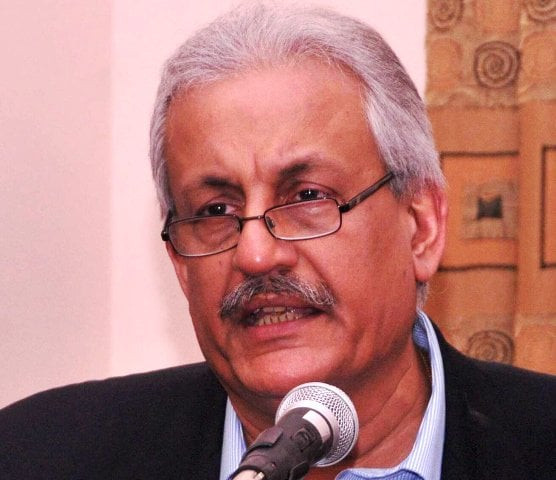Rabbani warns against attempts to curtail Sindh's autonomy
18th Amendment was a necessary step in regaining provincial autonomy, says Senator Rabbani

Senator Mian Raza Rabbani. PHOTO: FILE
Senator Rabbani proposes amendment in ECL law
This was stated by Senator Mian Raza Rabbani, also the former chairperson of the Senate of Pakistan, while addressing a talk on “18th Amendment: Applause and Criticism,” in Karachi. The talk was organised by Society for Global Moderation (SGM), a private think tank.
Senator Rabbani said that the smaller provinces began to feel that they were not a part of the decision-making process but the 18th Amendment attended to this grievance.
Drawing his audience’s attention to the very foundations that led to the establishment of Pakistan, Senator Rabbani said that Pakistan came into being as a result of the demands put forward by the provinces.
He said the Muslim majority provinces had been demanding provincial autonomy and ultimately, this demand transformed into the demand for a separate homeland.
In Quaid-e-Azam’s 14 points as well, he pointed out, there were four points that related to provincial autonomy. Senator Rabbani said that Pakistan is a multi-ethnic and a multilingual state and if the autonomy given to the provinces is taken back, it will have very serious consequences for the federation.
He further said that there was a need to amend the Constitution and this eventually led to the 18th Amendment which gave the provinces sole legislative authority over many of the subjects. In this respect, he said, the 18th Amendment was considered a necessary step in regaining provincial confidence and providing autonomy to the provinces.
Provincial govt urged to activate its websites
The 18th Amendment of the Constitution of Pakistan was passed by the National Assembly of Pakistan on April 8, 2010, removing the power of the President of Pakistan to dissolve the Parliament unilaterally. This turned Pakistan from a semi-presidential to a parliamentary republic. The Amendment was expected to counter the sweeping powers amassed by the Presidency.
Published in The Express Tribune, October 28th, 2018.



















COMMENTS
Comments are moderated and generally will be posted if they are on-topic and not abusive.
For more information, please see our Comments FAQ